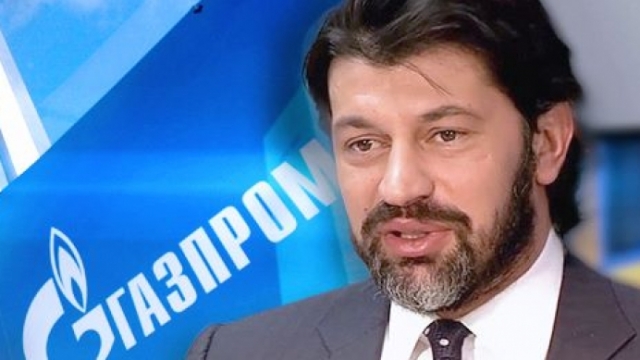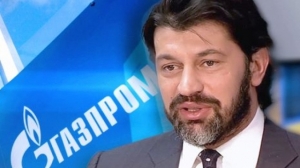Gazprom Deal: Playing with Fire?
Georgia’s Energy Minister Kakha Kaladze has told reporters that the concern created in relation to Gazprom is without basis.
The public unrest arose when Kaladze and Gazprom representative Elena Burmistrova met in Zurich on December 27 to discuss an issue which Georgia society regards as of high importance for Georgia’s national security.
According to Minister Kaladze, the negotiations are vital for the Georgian side. He stated that this is not the first year the Georgian side has had relations with Gazprom, adding that the existing agreement is reviewed every year.
“In this case, changing the agreement conditions is required – we would like to be paid some amount in return for the 10% volume… we launched the negotiations long ago. Several meetings were held but no final agreement has been reached,” Kaladze commented, adding that for the past two months, many vague statements have been voiced by so-called experts.
Meanwhile Georgia’s main opposition party, the United National Movement (UNM), has demanded the content of the agreement signed with Gazprom to be published. The party has announced it is to launch an anti-government campaign if the agreement is not publicized.
The UNM stated this step is a threat to Georgia’s energy security and tarnishes its sovereignty.
“Georgian society was informed about a meeting with Gazprom representative Elena Burmistrova on December 27th in Zurich. Georgian civilians know that the issue of gas supply is not just any economic or commercial issue, but directly linked to Georgia’s political sovereignty,” the UNM statement reads.
The Diplomats Club, which brings together former senior Georgian diplomats, believe Minister Kaladze should resign from his post. In addition, several protest actions against the Gazprom negotiations have been planned this week in Tbilisi and other regions.
Commenting on the topic, U.S. External Policy Council Expert Stephen Blank told Georgian newspaper Kviris Palitra that gas import from Russia will negatively impact Georgia-U.S. relations.
Blank says he cannot see any need for Russian or Iranian gas while Azerbaijan provides Georgia with a sufficient volume of natural gas, naming it “a policy of private and not social profit.”
The US expert added that the policy undermines Georgia’s opportunities to resist Russia.
On the reports of media over possible import of Iranian gas, Georgia’s Energy Minister responded that there is no particular agreement with Iran signed yet. According to Deputy Energy Minister Ilia Eloshvili, Georgia will have financial liabilities with Gazprom, as the pipeline which will potentially provide Georgia with gas from Russia.
Early October, when Kaladze announced Gazprom could fill a “gap caused by the energy shortage of Azerbaijan”, several protest actions were held in Tbilisi to rail against returning to Russia’s energy influence after the 2006 cold winter, when Russia endeavored Georgia to pay its political price for Euro-Atlantic aspiration and, as a result, cut gas supply during a very cold winter.
After the meeting at the Energy Ministry on Wednesday, Head of SOCAR (Azerbaijani state oil company) Georgia, Mahir Mamedov, told reporters that Georgia’s demand for natural gas is slowly increasing; however, Azerbaijan is capable of providing more than enough gas.
Experts working in the field assume that the Gazprom negotiations are of a political nature and that the involvement of Bidzina Ivanishvili, a former PM who holds a considerable share at Gazprom, could be a driving factor in this process.
At the same time, Frontera Resources, an American oil and gas exploration and production company, recently announced that a groundbreaking amount of gas has been found at the South Kakheti Gas Complex of Georgia. Frontera says the gas field in Georgia is of high significance, needing rapid development. According to the American company, the gas field can potentially transform Georgia from an energy-dependent to a gas exporter for the entire region.
However, there is a reasonable notion that the case could be politically ‘muted’. Some experts allege that a correlation between the Frontera discovery and the Gazprom deal could be legitimate.
Will the Georgian government sign an agreement which will contradict the country’s national interests? Is the Gazprom deal playing with fire?
Zviad Adzinbaia












